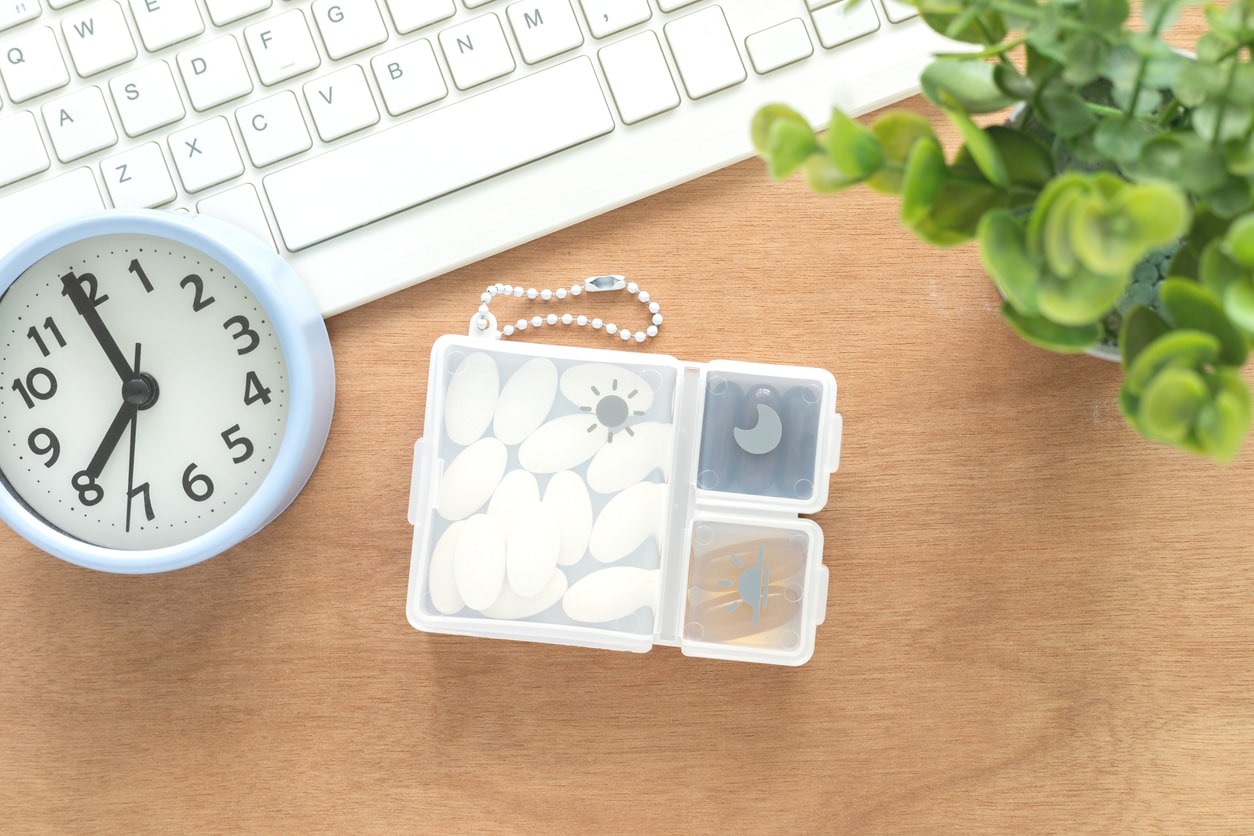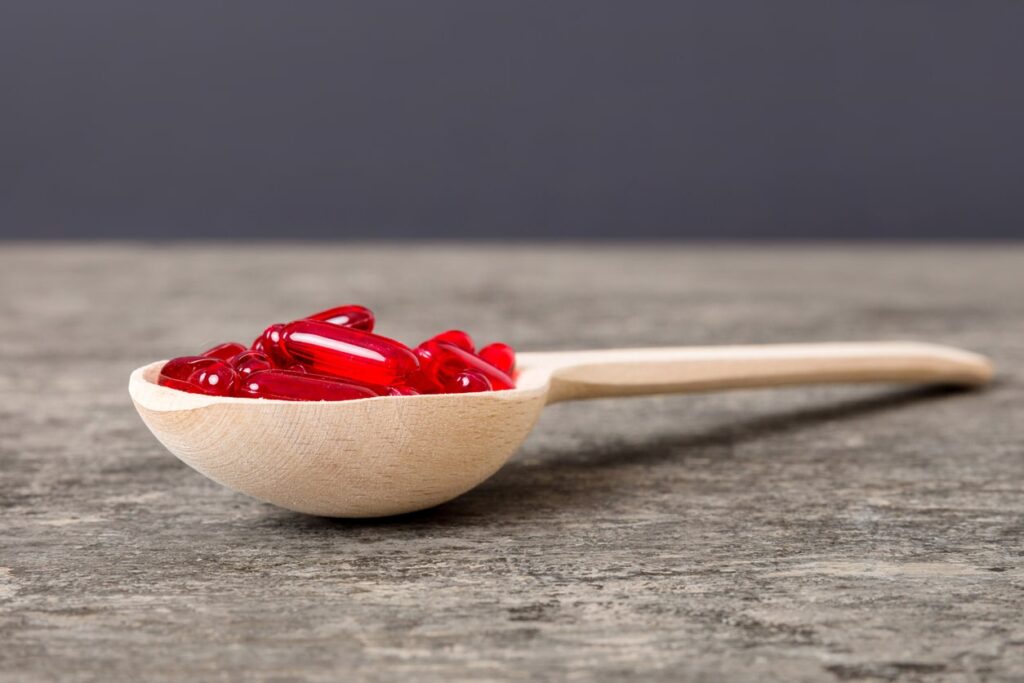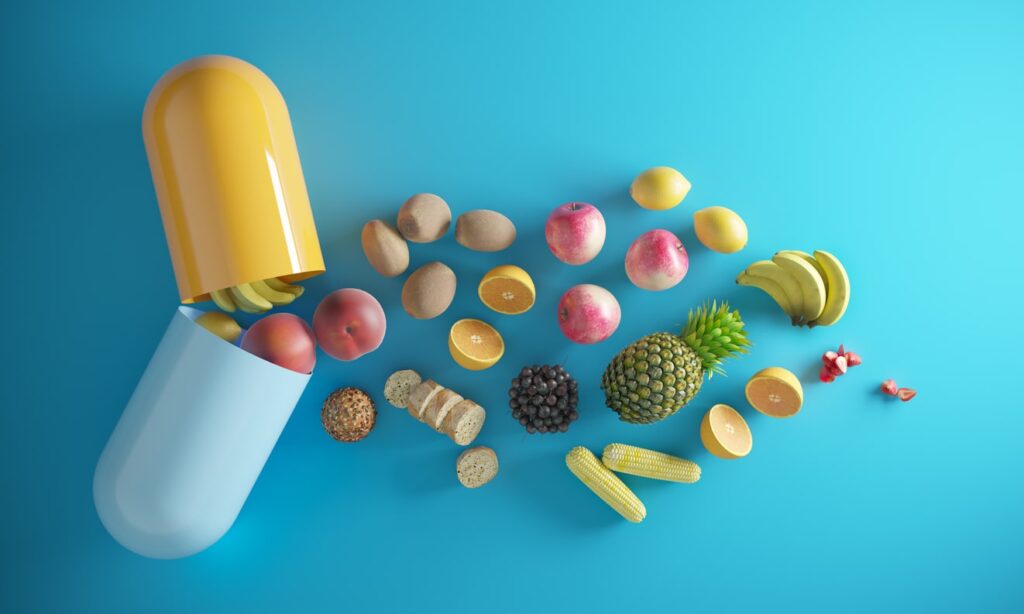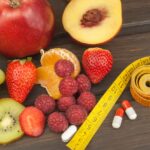Now Reading:
-
01

Vitamins for Addiction Recovery: Boost Brain Health, Restore Energy, and Support Healing During Sobriety
Addiction takes a heavy toll on the body. Long-term substance use drains essential nutrients, weakens the immune system, and disrupts emotional balance. As individuals work toward healing, nutrition becomes a powerful ally. In particular, vitamins for addiction recovery play a crucial role in rebuilding physical health, boosting brain function, and supporting lasting sobriety.
Good nutrition restores what addiction depletes. Replenishing key vitamins can lift mood, stabilize energy, and speed up emotional and physical recovery. In this article, we’ll explore essential vitamins for addiction recovery, why they matter, and how to naturally include them in daily life.
Why Vitamins Matter in Addiction Recovery
During active addiction, nutrition often takes a backseat. Substances like alcohol, opioids, stimulants, and sedatives interfere with nutrient absorption and metabolism. Poor diet, appetite loss, and digestive problems are common, leaving many people malnourished by the time they enter recovery.
According to the Substance Abuse and Mental Health Services Administration (SAMHSA), addressing nutritional deficiencies improves treatment outcomes, boosts mental clarity, and strengthens emotional resilience during recovery 1.
Vitamins for addiction recovery help by:
- Supporting neurotransmitter production (like dopamine and serotonin)
- Enhancing brain function and emotional regulation
- Repairing damaged cells and tissues
- Strengthening the immune system
- Restoring energy and reducing fatigue
Essential Vitamins for Addiction Recovery
Here’s a closer look at the most important vitamins for addiction recovery and how they promote healing during sobriety.
1. B Vitamins (B1, B2, B3, B6, B9, B12)
Why they matter:
B vitamins are crucial for energy production, brain health, and emotional stability. Substance use, especially alcohol, severely depletes B vitamin levels.
Key benefits:
- Boost energy and reduce fatigue
- Support nervous system health
- Improve mood and cognitive function
- Aid in the production of neurotransmitters
Food sources:
- Leafy greens (spinach, kale)
- Whole grains (brown rice, oats)
- Eggs
- Lean meats (chicken, turkey)
- Legumes (beans, lentils)
A 2017 study in Nutrients found that B-complex supplementation significantly improved mood and reduced anxiety symptoms during early recovery 2.
2. Vitamin C
Why it matters:
Vitamin C is a powerful antioxidant that helps protect the body from oxidative stress, repair tissues, and strengthen the immune system—crucial after the damage caused by substance use.
Key benefits:
- Supports immune health
- Reduces inflammation and oxidative damage
- Aids in adrenal gland recovery (important for stress management)
Food sources:
- Oranges
- Strawberries
- Bell peppers
- Broccoli
- Kiwi
3. Vitamin D
Why it matters:
Vitamin D deficiency is common among individuals with substance use disorders. This vitamin is essential for mood regulation, bone health, and immune function.
Key benefits:
- Improves symptoms of depression
- Strengthens bones weakened by poor nutrition
- Supports overall immune system strength
Food sources:
- Fatty fish (salmon, mackerel, sardines)
- Fortified dairy products or plant-based milks
- Egg yolks
Getting sunlight exposure for 10–20 minutes a day also naturally boosts Vitamin D levels.

4. Vitamin A
Why it matters:
Vitamin A supports tissue repair, immune health, and vision. Recovery from substance use often involves healing internal organs and rebuilding overall health.
Key benefits:
- Helps repair skin and internal tissues
- Supports a strong immune response
- Promotes better vision and eye health
Food sources:
- Sweet potatoes
- Carrots
- Spinach
- Cantaloupe
5. Vitamin E
Why it matters:
Vitamin E is another important antioxidant that protects cells from damage and supports heart and immune health.
Key benefits:
- Reduces oxidative stress
- Promotes skin and tissue healing
- Supports cardiovascular health
Food sources:
- Nuts and seeds (almonds, sunflower seeds)
- Avocados
- Spinach
- Broccoli
Supporting Minerals in Recovery
While vitamins are critical, a few minerals also deserve special mention for recovery support:
- Magnesium: Helps regulate mood, sleep, and muscle function.
- Zinc: Supports immune function and cellular healing.
- Iron: Replenishes red blood cells and improves energy.
A balanced recovery diet should aim to include these minerals alongside the essential vitamins for addiction recovery.
Real-Life Story: How Vitamins Helped Maria’s Recovery Journey
Maria, 29, entered a recovery program for stimulant addiction feeling exhausted, foggy, and emotionally unstable. A blood test revealed significant deficiencies in Vitamin D, B12, and iron.
“I started taking a B-complex vitamin and a Vitamin D supplement, and I made simple changes to my diet—more greens, lean protein, and fruits. Within weeks, my mood lifted, and I had more energy to stay engaged in therapy.”
Today, Maria continues to prioritize nutrition as a foundation for her ongoing sobriety.
How to Incorporate Vitamins Into Recovery
You don’t need a complicated plan to start benefiting from vitamins for addiction recovery. Here are easy steps:
1. Focus on Whole Foods
Eat a variety of colorful fruits, vegetables, whole grains, and lean proteins to naturally boost vitamin intake.
2. Consider Supplementation
Work with a healthcare provider to check for deficiencies and determine if supplements like B-complex, Vitamin D, or multivitamins are needed.
3. Stay Consistent
Consistency matters. Making small, daily nutritional improvements builds a foundation for long-term healing.
4. Hydrate Properly
Water supports nutrient absorption and helps flush out toxins.
Final Thoughts: Nourishing the Body and Mind
Vitamins for addiction recovery are more than just nutrients—they are building blocks for healing. They restore energy, lift mood, repair the brain and body, and give people the strength to stay committed to their sobriety journey.
Recovery is a holistic process. Good nutrition, including the right vitamins, is a vital part of rebuilding a healthy, vibrant life. Each nourishing meal, each simple choice to care for the body, becomes an act of self-respect—and a step closer to lasting freedom.
Start today with one change: add a colorful vegetable to your plate, take a walk in the sunshine, or talk to a doctor about your nutritional needs. Healing begins with small, powerful steps.
Sources
- SAMHSA. (2022). The Role of Nutrition in Recovery. Retrieved from [https://www.samhsa.gov] ↩
- Kennedy, D. O. (2017). B Vitamins and the Brain: Mechanisms, Dose and Efficacy—A Review. Nutrients. ↩

Kevin Fletcher is a seasoned writer with over 10 years of experience crafting engaging and informative content in the health, fitness, and wellness industries. Passionate about helping readers live healthier lives, Kevin combines research-backed insights with practical tips to inspire positive change.
























